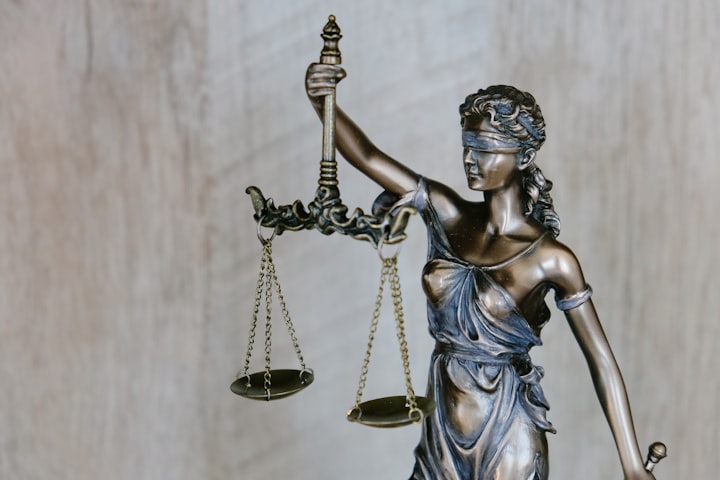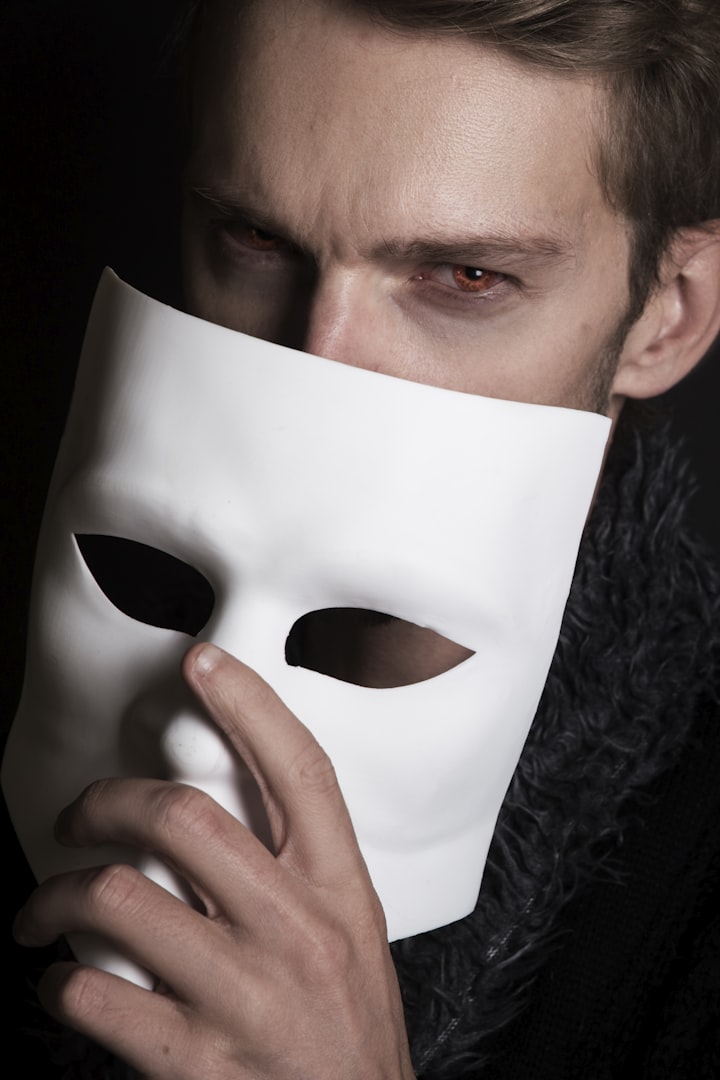Tales from the Courtroom: Riveting Trials and Legal Drama
Delve into riveting courtroom trials and legal drama, from historic cases to modern-day sagas. Explore the power of justice, the influence of media, and the ethical dilemmas faced. Uncover captivating stories that have shaped history and sparked public fascination

Tales from the Courtroom: Riveting Trials and Legal Drama
The courtroom is a stage where stories unfold, characters clash, and justice hangs in the balance. From ancient times to the present day, courtroom trials have captivated audiences with their riveting narratives and legal drama. In this article, we delve into the world of trials that have left a lasting impact on society and explore the fascinating tales that have emerged from the courtroom.
Introduction
Courtroom trials are legal proceedings where disputes are resolved, evidence is presented, and judgments are rendered. They serve as a cornerstone of the legal system, providing a platform for justice to be served and legal principles to be upheld. These trials have not only shaped the course of history but have also become a source of fascination for people around the world.
Famous Trials in History
Throughout history, certain trials have stood out for their significance and the enduring stories they have left behind. One such trial is the trial of Socrates, the ancient Greek philosopher who was charged with corrupting the youth of Athens and undermining the city's gods. The trial and subsequent execution of Socrates became a symbol of intellectual freedom and the clash between philosophy and the state.
Another infamous trial is the Salem Witch Trials that took place in colonial Massachusetts in the late 17th century. Accusations of witchcraft led to the arrest and prosecution of numerous individuals, resulting in the execution of twenty people. The Salem Witch Trials remain a cautionary tale about mass hysteria, religious intolerance, and the dangers of unchecked authority.
In more recent times, the trial of O.J. Simpson gripped the nation in the 1990s. The former football star was charged with the murder of his ex-wife Nicole Brown Simpson and her friend Ron Goldman. The trial, with its high-profile cast of characters and intense media coverage, highlighted issues of race, celebrity, and the flaws in the criminal justice system.
High-Profile Trials of the Modern Era
The modern era has witnessed several high-profile trials that have garnered significant attention and public scrutiny. One such trial is the Casey Anthony Trial, which unfolded in 2011. Casey Anthony, a young mother from Florida, was accused of killing her two-year-old daughter. The trial generated widespread media coverage and divided public opinion, culminating in a surprising verdict that acquitted Casey Anthony of murder charges.
The Amanda Knox Trial is another gripping legal drama that captured global attention. Knox, an American exchange student, was accused of the murder of her roommate, Meredith Kercher, in Italy. The case became a media sensation, with Knox's guilt or innocence fiercely debated. Ultimately, after years of legal battles and multiple trials, Knox was acquitted and set free.
The Michael Jackson Trial, held in 2005, involved the legendary pop star facing charges of child molestation. The trial was a media circus, with intense scrutiny of Jackson's personal life and a divided public opinion. Although Jackson was acquitted of all charges, the trial marked a turning point in his public image and had a lasting impact on his career.
Landmark Cases and Legal Precedents
Apart from the trials that captivated public attention, there have been numerous landmark cases that shaped the legal landscape and set important legal precedents. One such case is Brown v. Board of Education, a pivotal trial in the United States that challenged racial segregation in public schools. The Supreme Court's unanimous decision that separate educational facilities were inherently unequal marked a significant victory for the civil rights movement.
Roe v. Wade is another landmark case that had far-reaching implications. In this trial, the Supreme Court recognized a woman's constitutional right to have an abortion, legalizing abortion in the United States. The case remains a subject of intense debate and has had a profound impact on reproductive rights and women's autonomy.
Miranda v. Arizona is yet another crucial trial that established the rights of individuals in police custody. The Supreme Court's ruling mandated that law enforcement officers must inform suspects of their rights, including the right to remain silent and the right to an attorney. The Miranda Warning, derived from this case, has become a well-known feature of the criminal justice system.
Controversial Trials and Their Impact
Some trials have not only been significant in their own right but have also had a lasting impact on society and the pursuit of justice. One such trial is the Scopes Monkey Trial that took place in 1925. The trial centered around the teaching of evolution in public schools, with John Scopes, a high school teacher, facing charges of violating a Tennessee law prohibiting the teaching of any theory that denied the divine creation of man. The trial became a battleground between science and religion, highlighting the tension between faith and reason.
The Nuremberg Trials, held after World War II, were instrumental in bringing Nazi war criminals to justice. The trials, conducted by an international tribunal, exposed the atrocities committed during the Holocaust and set the stage for the development of international criminal law. The Nuremberg Trials marked a significant step toward ensuring accountability for war crimes and crimes against humanity.
The trial of Adolf Eichmann, one of the key architects of the Holocaust, captured the world's attention in the 1960s. Eichmann was captured by Israeli agents in Argentina and brought to trial in Jerusalem. The trial shed light on the horrors of the Holocaust and confronted the world with the responsibility to remember and learn from the past.
Notable Legal Dramas in Popular Culture
Courtroom trials have not only influenced the real world but have also become a rich source of inspiration for storytellers in popular culture. Works of literature, plays, and movies often draw upon the intense drama and moral dilemmas found within the courtroom setting. One such classic is "To Kill a Mockingbird," Harper Lee's Pulitzer Prize-winning novel that explores racial injustice through the eyes of lawyer Atticus Finch and his defense of a falsely accused African American man.
"A Few Good Men," a play later adapted into a film, takes audiences inside a military courtroom as a young Navy lawyer defends two Marines accused of murder. The gripping legal drama delves into themes of honor, loyalty, and the moral responsibilities of those in positions of power.
"12 Angry Men," both a play and a movie, focuses on a jury deliberating a murder case. As tensions rise and personal biases come to the surface, the story highlights the importance of critical thinking, empathy, and the presumption of innocence.
The Influence of Media on Courtroom Trials
In the modern age, media plays a significant role in shaping public perception of courtroom trials. The 24-hour news cycle, social media platforms, and the ubiquity of cameras in the courtroom have transformed how trials are covered and consumed by the public.
Media coverage of trials can shape public opinion, influence jury pools, and potentially impact the outcome of cases. It can also provide a window into the justice system, allowing the public to observe the proceedings and hold those involved accountable.
The use of cameras in the courtroom has been a topic of debate. Proponents argue that transparency and public access to trials are essential for maintaining a fair and open judicial process. However, critics raise concerns about the potential for sensationalism, privacy invasion, and the impact on witnesses and the accused.
Courtroom Strategies and Dramatic Moments
Inside the courtroom, attorneys employ various strategies and techniques to present their case and sway the jury. Opening statements and closing arguments serve as the bookends of a trial, where attorneys craft persuasive narratives that frame the evidence and shape the jury's perception.
Cross-examinations, often filled with tense exchanges and dramatic confrontations, aim to challenge the credibility of witnesses and uncover inconsistencies in their testimony. Witness testimonies, filled with personal stories and emotional moments, can have a profound impact on the jury's decision-making.
Trials are not without their fair share of unexpected plot twists and revelations. Witnesses may unexpectedly change their testimony, new evidence may emerge, or the defendant may choose to testify. These dramatic moments can turn the tide of a trial and keep audiences on the edge of their seats.
Ethical Dilemmas and Legal Ethics in Trials
Trials present attorneys with a range of ethical dilemmas as they navigate the complex terrain of the legal system. Defense attorneys are tasked with zealously advocating for their clients, even if they believe their clients may be guilty. This raises questions about the boundaries of moral responsibility and the balance between individual rights and societal interests.
Conflicts of interest can also arise during trials, where attorneys must carefully navigate their professional obligations while ensuring their actions do not compromise the integrity of the legal process. Attorney-client privilege, a cornerstone of legal ethics, protects the confidentiality of communications between attorneys and their clients, further adding to the ethical complexities of trials.
Balancing justice and fairness is a fundamental challenge in any trial. Attorneys must strive to uphold the principles of due process, equal protection, and the presumption of innocence while pursuing justice for their clients and protecting the rights of victims.
Lessons Learned from Riveting Trials
Riveting trials provide valuable lessons and insights into the legal system and the human condition. The power of persuasive storytelling becomes evident as attorneys construct compelling narratives that engage the jury and sway public opinion. These stories can shape the course of trials and influence the outcome.
Furthermore, riveting trials highlight the importance of a fair trial, where the rights of the accused and the principles of justice are upheld. They underscore the need for unbiased jurors, ethical attorneys, and a judicial system that functions with integrity.
Landmark decisions resulting from trials have far-reaching consequences, shaping laws, policies, and societal norms. They can lead to reforms, protect civil rights, and challenge entrenched inequalities. Riveting trials remind us of the potential of the legal system to drive change and ensure justice.
Conclusion
Tales from the courtroom are a testament to the power of storytelling, the complexities of the legal system, and the impact of trials on society. From ancient trials that shaped philosophical thought to modern-day courtroom dramas that capture the public's imagination, these stories reveal the intricacies of the human experience and the pursuit of justice.
Courtroom trials continue to fascinate and captivate audiences, whether in real life or through works of fiction. They serve as a reminder of the immense power and responsibility wielded by those involved in the legal process. Riveting trials leave an indelible mark on history, shaping legal principles, and challenging societal norms.
FAQs
What makes a trial riveting?
A riveting trial is characterized by compelling narratives, dramatic moments, and high stakes. It engages the audience, provokes emotions, and captures public attention.
How does media influence courtroom trials?
Media coverage can shape public perception, influence jury pools, and potentially impact the outcome of trials. It provides transparency and access but also raises concerns about sensationalism and privacy.
What ethical dilemmas do attorneys face during trials?
Attorneys face dilemmas such as defending potentially guilty clients, managing conflicts of interest, and upholding legal ethics while pursuing justice.
How do riveting trials impact society?
Riveting trials can lead to landmark decisions, legal reforms, and societal changes. They shape laws, protect rights, and challenge inequalities.
What lessons can be learned from riveting trials?
Riveting trials teach us about the power of storytelling, the importance of a fair trial, and the potential of the legal system to drive change and ensure justice.
About the Creator
Ted Bundy
Welcome to our true crime blog, where we unravel mysteries, explore criminal minds, and share gripping narratives. Join us for captivating investigations and engage in thoughtful discussions on the pursuit of justice.





Comments
There are no comments for this story
Be the first to respond and start the conversation.